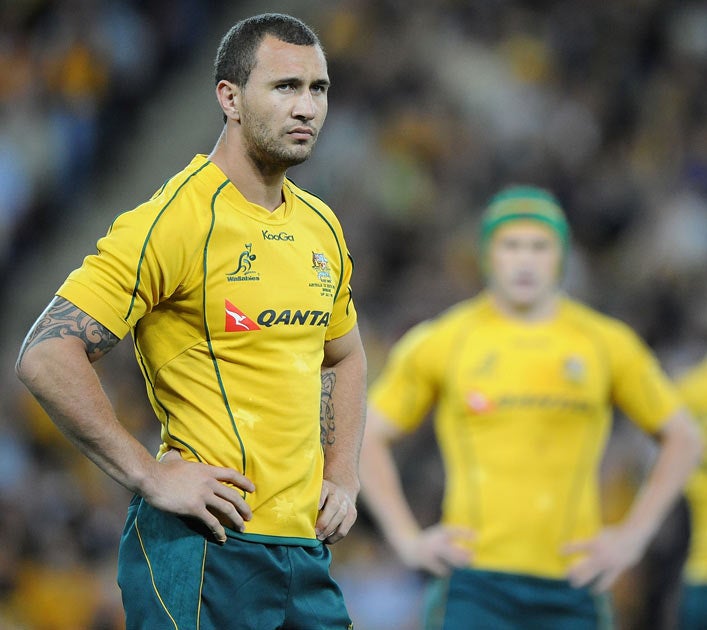Peter Bills: English clubs could learn from the Tri-Nations

Your support helps us to tell the story
From reproductive rights to climate change to Big Tech, The Independent is on the ground when the story is developing. Whether it's investigating the financials of Elon Musk's pro-Trump PAC or producing our latest documentary, 'The A Word', which shines a light on the American women fighting for reproductive rights, we know how important it is to parse out the facts from the messaging.
At such a critical moment in US history, we need reporters on the ground. Your donation allows us to keep sending journalists to speak to both sides of the story.
The Independent is trusted by Americans across the entire political spectrum. And unlike many other quality news outlets, we choose not to lock Americans out of our reporting and analysis with paywalls. We believe quality journalism should be available to everyone, paid for by those who can afford it.
Your support makes all the difference.Last weekend in Australia witnessed a quite extraordinary statistic, one of the most remarkable the old game can ever have known.
In a major rugby Test match, one outside half kicked the ball just ONCE in the entire 70 minutes he was on the field. Quade Cooper of Australia is renowned as a player who likes to keep the ball in hand. Yet it wasn't just the Wallaby No. 10 who scorned the use of the boot.
The entire Australian team managed to put boot to ball just 11 times in the whole match against the South Africans in Brisbane. What is more, the previous two weeks, the All Blacks had similarly adopted a running policy against the Springboks, outscoring them by eight tries to two.
Figures such as this would doubtless send shock waves through English rugby where such innovative thinking is shunned, with the exception of a few notable club sides. But those who are wise in the northern hemisphere will take great heed of this year's Tri-Nations tournament and learn valuable lessons from it.
Beyond dispute, this has been the most entertaining start to a Tri-Nations competition in years..... as long as you are not South African. But it begs a question. Did the All Blacks coaching team of Graham Henry, Steve Hansen and Wayne Smith devise this strategy simply to fool the Springboks?
I don't think that is true because after all, the All Blacks played the same way last November in Marseille to put France to the sword. Nevertheless, both New Zealand and Australia have been exceedingly clever in the way they have so suddenly shut down the Springboks main attacking platform, the line-out, by virtually refusing to kick to touch.
The South Africans have been bemused by the tactic. They always started most of their attack moves from that phase, with the likes of Victor Matfield, Pierre Spies and, a little further back, Juan Smith winning regular line-out possession.
But the tactics of the All Blacks and Wallabies has forced them to re-think their entire playing strategy and thus far, they have had no real answer to the conundrum. Now that doesn't mean they never will find one and they have almost a month before their next Test, against New Zealand in Johannesburg, to return to the drawing board and re-think their approach.
In that time, you'd have to believe they will do so. But the march their opponents have stolen upon them in this tournament has almost certainly cost South Africa their Tri-Nations title.
The fascination with this new game that is emerging in Australia and New Zealand is that it requires players to think for themselves. It is not a game which fits the pre-programmed, robotic type of approach too many teams in the northern hemisphere have adopted in recent years.
Yet New Zealand coach Graham Henry, for one, believes this will change once the northern hemisphere seasons starts in around four weeks time. Henry told me "I see no reason why the teams of the northern hemisphere can't play this way. They have the players to do it and I'm sure those players will enjoy this type of rugby so much more than the game we had this time last year."
Henry sympathises with northern hemisphere players who were asked to switch styles halfway through last season. "That's not easy for anyone to do" he said.
By his words, Henry was throwing down a challenge to northern hemisphere rugby men but especially coaches. Freeing players from the yoke of pre-programming and allowing them to make decisions for themselves on the field is the name of this new game.
We all ought to applaud this new philosophy. Only the dinosaurs will tell you that last year's boring aerial ping-pong was a better spectacle than this newer, faster game. For as Henry says, if a side is stronger and superior in the forwards it can still dictate the course of a match through that strength.
The difference is that the ball can be moved and more tries scored by teams that seek to attack. They need no longer be frustrated by excessive negativity from their opponents. Everyone should be encouraged by that trend.
Join our commenting forum
Join thought-provoking conversations, follow other Independent readers and see their replies
Comments